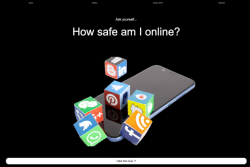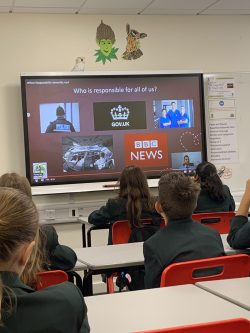eLearning Leaders Cybersecurity Update
October is cybersecurity awareness month. To help raise awareness around cybersecurity the E-learning leaders have created a website containing a game to make learning about how...
Filter by Category
Filter by Author



























































































































































































October is cybersecurity awareness month. To help raise awareness around cybersecurity the E-learning leaders have created a website containing a game to make learning about how...
Posted by James Booth

As the Head of Willow House it is always a privilege to meet the new Year 7 cohort as they begin their Bushey Meads journey. The theme of the week this week was Responsibility and...
Posted by James Booth

This half term has been full of achievement for the Willow House students. We have had some great events take place in the School this term and there are still many to come!...
Posted by James Booth

We are underway into the Spring Term now and I would like to inform you all about the great achievements Willow House Students have been a part of. I really want to recognise the...
Posted by James Booth

As 2020 draws to a close, it was great to see all students and staff enjoying themselves during the first ever CDC Christmas Party. The past few weeks, the Heads of House have...
Posted by James Booth

Firstly I would like to introduce the Bushey Meads eLearning Leaders! Our team is made up of students from years 7 – 13. These are the students who have been working very...
Posted by James Booth
October is cybersecurity awareness month. To help raise awareness around cybersecurity the E-learning leaders have created a website containing a game to make learning about how to stay safe online fun.
Being safe online is very important. Nowadays, we rely on the internet but it is important to know some of the dangers of the internet. Here are three of the many crucial things we need to look out for on the internet today.
Phishing
Phishing is a cybercrime in which a target is contacted by email, phone or text by someone pretending to be from a reputable company who tries to lure the target into giving away their data. This information is then used to access accounts and cause havoc and financial loss. You can make sure you don’t become a victim of phishing by not clicking on any links or attachments from dodgy looking emails or messages.
Doxxing
Doxxing is when somebody harvests information about you and publishes it online with malicious intent. Hackers use doxing to harass, threaten, or get revenge on others. Doxxers collect small pieces of information about you online and then put all the information together to see who you are. These small pieces of information can include the target’s name, physical address, email address, phone number, and more. You can avoid being a victim of doxxing by not sending any information about yourself online.
Spoofing
Spoofing is when a hacker sends you an email pretending to be a trusted person (colleague, family member) in order to gain access to your systems, steal data, steal money, or spread malware. You can avoid becoming a victim of spoofing by checking the sender’s email address. If you are still unsure whether the email was sent by the trusted person, call them with the number you saved on your phone and ask them if they sent the email.
To promote e-safety, the e-learning leaders created a website and game to help people understand how to stay safe online in an interactive and fun way. The first thing we did was send out a survey on people’s online habits. The data from this survey helped us to develop the website and game and tailor it to students’ online habits. The end result is shown below:
By Hadi Nasser

On Thursday 13th October, Year 11 students and their parents attended our annual Revision Techniques Evening. Each student received a Revision Goody Bag upon arrival containing an...

Year 12 and 13 Politics students have had a gripping time discussing the turbulent and dramatic political events of the last few weeks. At the start of the year Y12 students were...